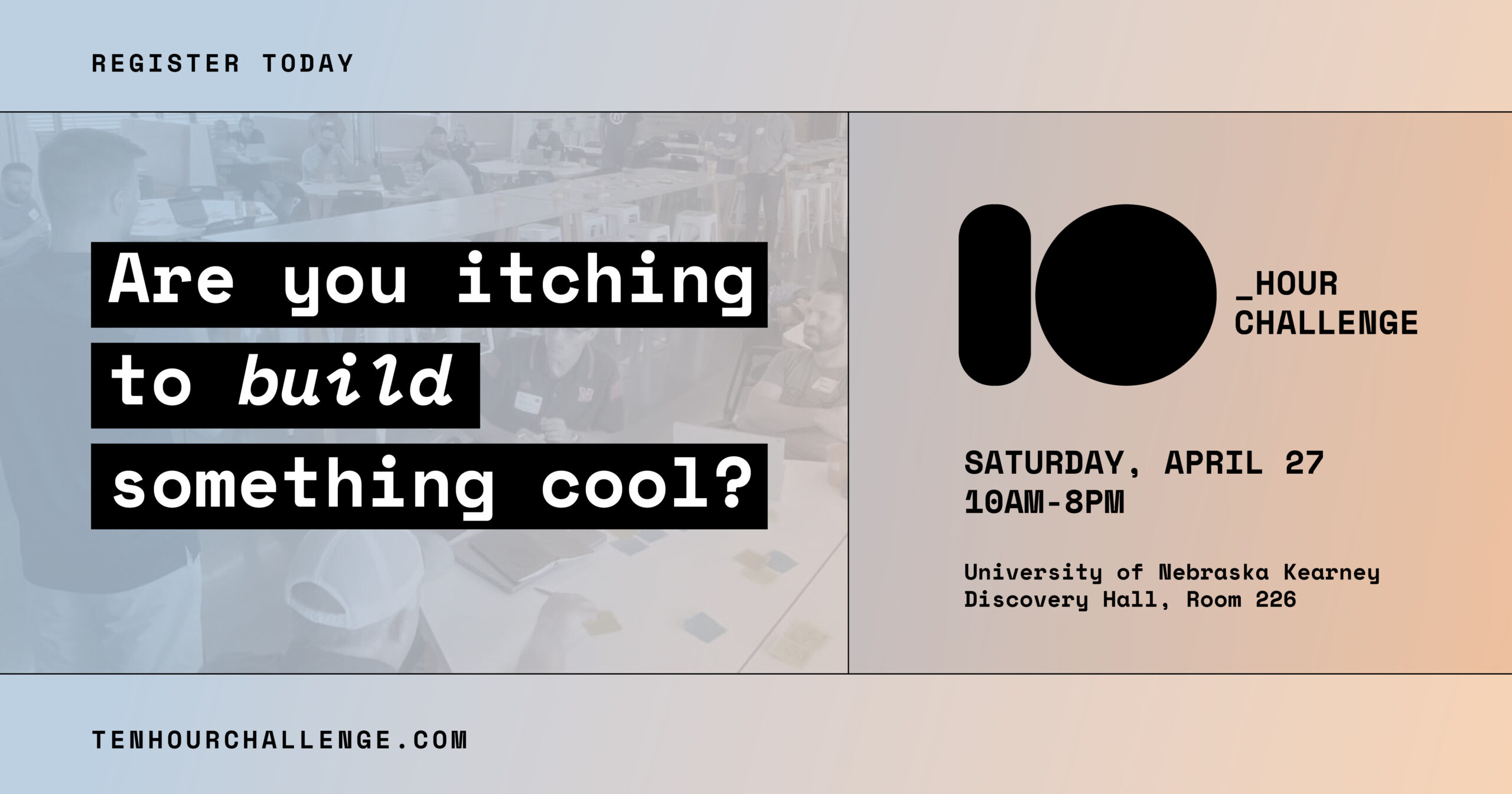I get it; coding isn’t everyone’s cup of tea.
I myself am a failed computer scientist, having dabbled in coding while in college. While that experience means I can write one hell of an IF Statement in Excel, I stopped before experimenting with harder concepts. There is something about all the math and classical logic that was such a downer for me. I wish I had the patience to work through the blockage, but alas, I do not, and that is okay.
Technology careers sometimes receive a bad rap because the culture has long portrayed tech workers as socially awkward people sitting behind a screen crunching numbers and writing code all day. Shoutout to you if you fit that description, but jobs in technology require whole teams of people with varying skill sets working together to create the electronic tapestry of our (virtual and nonvirtual) lives. As such, it takes all types of people for technology to impact our daily lives in ever-changing ways. Due to this need, technology is a field wide open. As a result, anyone, yes anyone, can use their passions to fuel a career in technology, even without knowing how to code.
According to the AIM Institute, the Omaha-based nonprofit with a mission to grow a strong and diverse tech community through education, career development, and outreach, technology careers fall under one of the Five Areas of Tech: Coding, Design, Data, Support, Infrastructure. AIM uses this model to help its constituents understand that anyone who desires to work in technology can do so; it is just a matter of finding the right fit.
BECOME A SPONSOR
Join us in championing the narrative of success, resilience, and ingenuity that defines Nebraska’s startup community. Learn more »
So let’s explore some possibilities in these areas. (We’ll explore how to get started in these areas in a future segment.)
Coding:
Example Jobs: Software Development, Systems Engineer, App Developer, QA Specialist
Okay, I know I said this was about tech jobs that don’t involve coding but hear me out.
Computer languages translate the rudimentary binary language of machines, 1s and 0s / on and off, into a more easily understood format. However, with each new language invited, coding becomes exponentially advanced and more manageable. Syntax is becoming less and less critical in the process of coding. Almost gone are the days that require knowledge of concrete and recursive programming phrasing such as cin(integer) cout(output), blah, blah, blah. The next generation of coding will be done, in part, via more straightforward formats. These new formats could include new languages with an easy interface that may use assistance tools such as node-based coding, GUIs, and other intuitive systems that make coding more accessible.
Additionally, teaching computers to write code for themselves, aka machine learning, is a fast-growing industry that may not require much coding skill in the future. So, if you haven’t given coding a hard look, maybe it is time to circle back and give it real consideration. It may not be as hard as you think.
tl;dr People who excel in coding are problem solvers, logical, risk-tolerant, decision-makers and have an eye for detail.
Design:
Example Jobs: Front-end Web Developer, Game Designer, Graphic Artist, UX Specialist
Design is the look and feel of the technology we use. Technology needs both form and function to be relevant. Technology is great, but if it is not intuitive to use, it does not create tangible solutions to everyday issues like we need it to do. Technology designers make things that look good and make technology accessible to the general public. If you have a knack for making things easy to use or for eye-catching designs, maybe this area of tech is right for you. Many designers in the tech space do not need to know how to code, or, if they do, they do not need to know super-advanced concepts. However, computer skills are a must as drawing and designing on a computer is much different from drawing on paper or designing in a tangible space.
tl;dr People who excel in design are creative, artistic, imaginative, big picture thinkers and can communicate with various kinds of people.
Data:
Example Jobs: Database Administrator, BI Specialist/Analyst, Cyber Security Analyst, Data Scientist
You’ve heard the term big data. Data is everywhere and tracking everything, including your daily movements. For example, in 2012, Forbes highlighted how Target knew a teenage girl was pregnant before she knew. That was the power of data ten years ago; just think what all data means in today’s society.
Persons working in the Data area of technology deal with the practices, architectural techniques, and tools for achieving consistent access to and delivery of data across the spectrum to meet the data consumption requirements of all applications and business processes. In a world where knowledge is power, data is king. Data work may involve some coding, but spotting patterns and root causes of seemingly random events are the underlying skill sets needed to succeed in this area of tech. So, if you are curious about the how and the why of things and can process lots of information systematically, data might be a good career path for you.
tl;dr People who excel in data are logical, analytical, statistics-driven, and inquisitive.
Support:
Example Jobs: IT Help Desk, Scrum Master, Technology Instructor, Project Manager
Repeat after me, “Have you tried turning it off and on again?” Boom! You’re ready to start a career in IT support. While this may be a bit tongue in cheek, jobs in technology support may be the most accessible to the average non-coder techie. However, support is not all about fielding phone calls and installing printer drivers. No, support is all about helping others and removing barriers to success. Support is the most extroverted family member of the Five Areas of Tech. So, if you enjoy helping others, this might be a great career path for you.
Support technology careers cover a wide variety of duties but fall into three main categories.
- Providing technical assistance:
These are the help desk and IT support professionals.
- Teaching others technology:
These are your computer teachers, software applications demo-ers, and training manual writers.
- Keeping people focused and on schedule:
These are the project directors, Agile implementers, Scrum Masters, and high-level IT professionals such as Directors of IT and Chief Information Officers (CIOs).
If you are good at working with people, know how to plan ahead, inspire others, and prefer various tasks each day, support technology may be the career that gets you the level of success in life you desire.
tl;dr People who excel in data are people-oriented, empathetic, leadership-driven, and must be able to interact with anyone from students to CEOs.
Infrastructure:
Example Jobs: Network Engineer, Systems Administrator, Internet of Things Specialist
Infrastructure is a timely topic these days. Like the nation’s physical infrastructure, technical infrastructure plays a massive role in navigating our daily lives. Again, like our physical infrastructures, many people do not think about our technical infrastructure until there is a proverbial pothole knocking us off the information superhighway.
However, it is a real struggle when the internet goes out. Outages now affect everything from our TV watching to our productivity at work. Infrastructure is the hardware, software facilities, and service components that keep us connected. Have you ever considered just what it takes to keep hundreds if not thousands of people and things connected to the internet simultaneously? If you have, infrastructure just might be the right area of tech for you.
tl;dr People who typically do well in infrastructure jobs enjoy building, tinkering, constructing, and exploring how systems work while streamlining processes and resolving problems.
Which of the Five Areas of Tech is suitable for you? Are you the extraverted type willing to get out there and Support, or would you rather gather and analyze Data? Perhaps Design is more your speed. If not, maybe Infrastructure gets you excited. Or you may even be that person who gives Coding a shot and loves it! You don’t know until you try!
The technology field offers excellent careers open to all people and skillsets. So even if you hate coding, you might just find a way to pursue your passion via technology. So now, are you willing to give it a try?
Did you find something of interest in the Five Areas of Tech but aren’t sure how to get started? Then join us for our upcoming five-part series, where we explore each area more deeply and discuss strategies to jumpstart your career.



